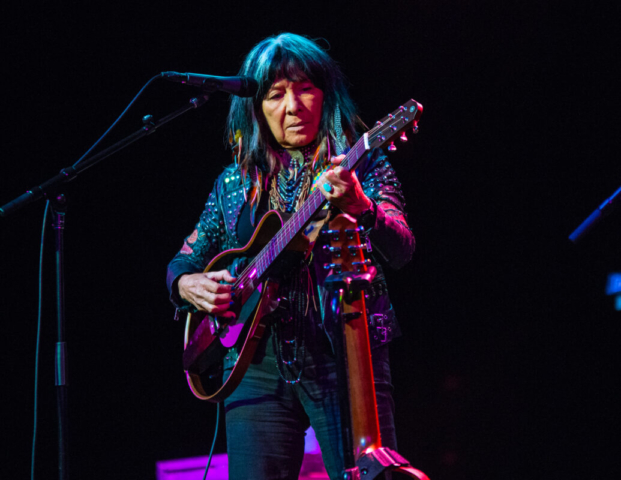Buffy Sainte-Marie is a highly influential Canadian-American singer-songwriter, musician, composer, visual artist, educator, and social activist. Born on February 20, 1941, on the Piapot Plains Cree First Nation Reserve in Saskatchewan, Canada, she is of Cree ancestry. Sainte-Marie’s multifaceted career spans several decades, and she has made significant contributions to the worlds of folk, rock, and indigenous music.
One of Buffy Sainte-Marie’s most notable achievements is her groundbreaking work as an advocate for indigenous rights and social justice. Her music often addresses issues such as the rights of indigenous peoples, environmentalism, and pacifism. In the 1960s, she emerged as a prominent voice within the folk music revival, gaining recognition for her poetic and socially conscious songwriting.
Sainte-Marie’s breakthrough came with her debut album, “It’s My Way!” released in 1964, which featured the classic protest anthem “Universal Soldier.” The song became an anti-war anthem during the Vietnam War and solidified her reputation as a politically engaged artist. Over the years, she continued to release critically acclaimed albums, including “Little Wheel Spin and Spin,” “Moonshot,” and “Coincidence and Likely Stories.”
Beyond her musical accomplishments, Buffy Sainte-Marie is known for her activism and efforts to promote indigenous culture. She has been a tireless advocate for the rights of indigenous peoples and has worked to raise awareness about issues affecting Native communities. In addition to her music career, Sainte-Marie is a visual artist and educator, using her talents to further cultural understanding and bridge gaps between communities.
Buffy Sainte-Marie’s impact on the music industry and her dedication to social justice have earned her numerous accolades, including the prestigious Polaris Music Prize and the Academy Award for Best Original Song for “Up Where We Belong” from the film “An Officer and a Gentleman.”
Buffy Sainte-Marie is a multifaceted artist whose enduring career encompasses music, activism, art, and education. Her commitment to social causes and her ability to use music as a tool for change make her a respected and iconic figure in the realms of folk and indigenous music.















